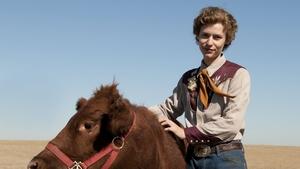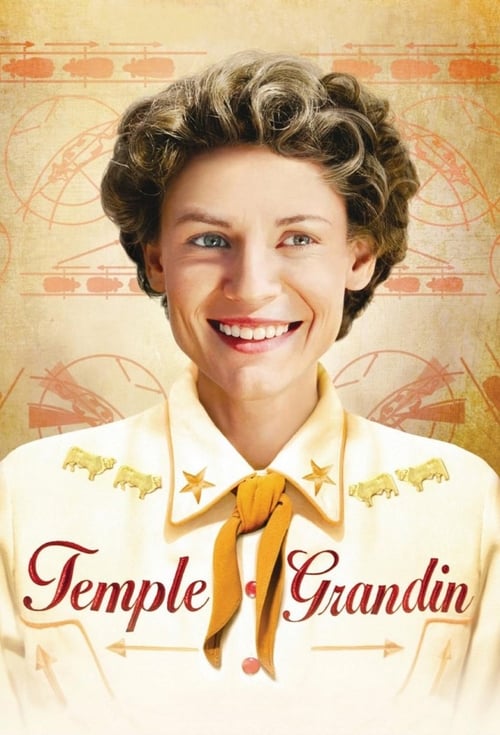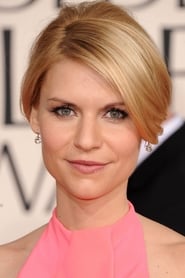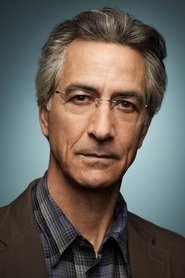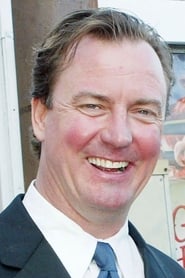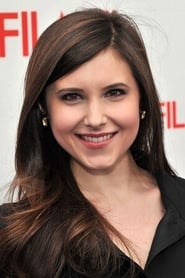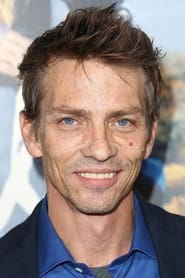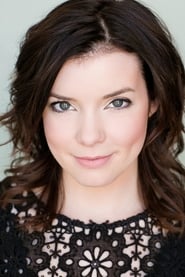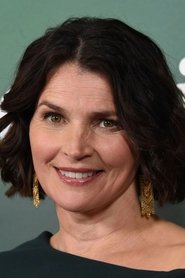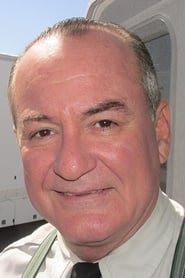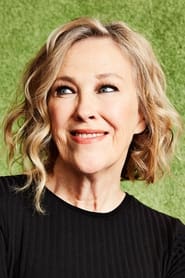Cast
View AllClaire Danes
as Temple Grandin
David Strathairn
as Professor Carlock
Barry Tubb
as Randy
Melissa Farman
as Alice
Charles Baker
as Billy
Blair Bomar
as Ellen
Cherami Leigh
as Marcia
Tamara Jolaine
as Nancy
Julia Ormond
as Eustacia
David Born
as Professor Shanklin
Catherine O'Hara
as Aunt Ann
Chloë Evans
as Dorothy
Jordan Strassner
as Science Student
Michael D. Conway
as Mr. Peters
Xochitl Romero
as Penelope
Crew
Director
- Mick Jackson
Producer
- Scott Ferguson
Reviews
Charles Tatum
Temple Grandin (Claire Danes) is just out of high school and sent to her Aunt Ann's (Catherine O'Hara, fitting into dramatic character roles very nicely) Arizona ranch. Her initial reaction to the climate and awkward way of behaving shows us that she has Asperger's Syndrome and/or autism. Asperger's is a milder form of autism, where the subject has better communication skills like speech, but is still unable to connect with our view of normal behavior. Temple grows to love the ranch, working with the animals and inventing an automatic gate that can be opened with the pull of a brass rod. She is very smart and detail-oriented, but must go to college. Temple's mother Eustacia (Julia Ormond, also maturing nicely into character roles) has been dealing with Temple's outbursts all of her life, and knows what it takes to calm Temple down. Unfortunately, college life is tough for Temple, who builds a machine that calms her but horrifies other students (it's a version of a cattle hold). Temple is thrown into this collegiate setting in the days before special services, yet she manages to make it through, and goes on to get her master's degree in animal husbandry back in Arizona. Again, Temple runs into obstacles- in the form of the cattlemen who don't want her around studying such silliness as what the cows' mooing mean- plus she is a woman, and they just aren't allowed. Temple designs and implements a new way to send cattle through a medicinal dip that is more humane to them, and then goes about rethinking the way cattle are slaughtered. Temple feels that animals were put on this earth for the service of man, but there is no reason we cannot be kind to them as part of their use as food and other products, and it makes good business sense.
Temple is headstrong, but she does not see the world like you and I do. She sees everything as a picture, and takes puns and jokes literally. When she hears the term "animal husbandry," her mind calls up a person marrying an animal, and so on. Death is a foreign concept, too, for both animals and humans. When a major character dies, she wonders where they went, and doesn't understand saying goodbye to them at a funeral, since she just told them goodbye when she saw them last. Somehow, Grandin went on to write for technical ranching journals, before becoming an autistic advocate, and the screenplay is based on two books- both of which she authored. Mick Jackson's direction is fantastic. Using special effects appropriately, he shows the viewer how Grandin is able to picture things in her mind. These scenes are a great learning experience without overwhelming the screen with technical wizardry, and tell us that autistics are not mentally deficient; they are different, not less (a line from Temple's mother). While the screenplay jumps back and forth in time too often (college, and then boarding high school?), it does not lose its focus on Grandin. While the supporting cast gets to use their onscreen time, the film has one central character who is fascinating enough to watch without any melodramatic gristle to get in the way. O'Hara is great as Aunt Ann, who knows her niece so well. Her reassuring phone calls and scenes with Temple's worried mom are well-played. Ormond is phenomenal as Temple's mother. I could completely associate with her, watching her offspring doing something strange, and blaming themselves for their child's condition. Eustacia is no screaming battleaxe, telling everyone where to stick their assorted diagnoses. She has the patience of a saint, deciding to teach Temple to speak with flash cards, and hesitantly accepting that her child is not able to show love and affection. David Strathairn is also wonderful as Temple's science professor at the boarding school, recognizing that Temple is brilliant if the coursework is changed to fit her learning style. Claire Danes is a revelation. She has been simply good in "Romeo + Juliet" and the third "Terminator" film, but her googly-eyed emoting in the overrated "My So-Called Life" drove me batty. I have seen interviews with the real Temple Grandin, and Danes doesn't just do a good job, or master some observed mannerisms, she becomes Temple Grandin. She nails it from the very first scene, and consistently got it right. The viewer doesn't need someone to come out and explain every one of Temple's quirks; her fear of automatic doors and lashing out physically when she feels threatened are all embodied by Danes. She is so good, I forgot I was watching a performance. This is one of the best pieces of acting I have ever seen, and I have been reviewing films in one way or another since elementary school. I loved "Temple Grandin." I could associate with it thanks to a family situation, but many more can find inspiration here. Not only will Temple's story inspire autistics and their families, this work might demonstrate to emerging artists what a powerful medium film can be.
Sep 30, 2023
Thematic Analysis
As a dramatic work, Temple Grandin examines complex human relationships and emotional struggles against the backdrop of contemporary challenges that mirror our own experiences. The character development particularly stands out, offering viewers a chance to reflect on their own life journeys.
Director Mick Jackson brings their distinctive visual style to this film, continuing their exploration of themes seen in their previous works while adding new elements. Their approach to character development and emotional depth creates a viewing experience that rewards close attention.
Released in 2010, the film exists within a cultural context that continues to evolve with our understanding of its themes. Its critical acclaim reflects its artistic achievements and its place in cinema history.
Did You Know?
- The production of Temple Grandin took approximately 10 months from pre-production to final cut.
- The final cut of the film runs for 108 minutes, though the director's initial assembly was reportedly 142 minutes long.
- The screenplay went through 13 major revisions before the final shooting script was approved.
- The cast underwent specialized training for 2 weeks before filming began.
- The director insisted on using practical effects whenever possible, reserving CGI for only the most necessary scenes.
Historical Context
- In 2010, when this film is released:
- Political polarization was intensifying in many countries.
- Smartphones and social media had transformed daily life and communication.
- Streaming platforms were disrupting traditional distribution models and changing how audiences consumed films.
How This Film Stands Out
While Temple Grandin shares thematic elements with other films in its genre, it distinguishes itself through its unique approach to storytelling, visual style, and character development.
Unlike Bonnie Prince Charlie, which takes a more conventional approach to its subject matter, Temple Grandin subverts genre expectations by exploring its themes with greater nuance.
While films like Fearless and Shine explore similar territory, Temple Grandin stands apart through its distinctive directorial vision and pacing.
This film's unique contribution to cinema lies in its thoughtful balance of entertainment value and thematic depth, making it a valuable addition to its genre.
Details
- Release Date: February 6, 2010
- Runtime: 1h 48m
Where to Watch

